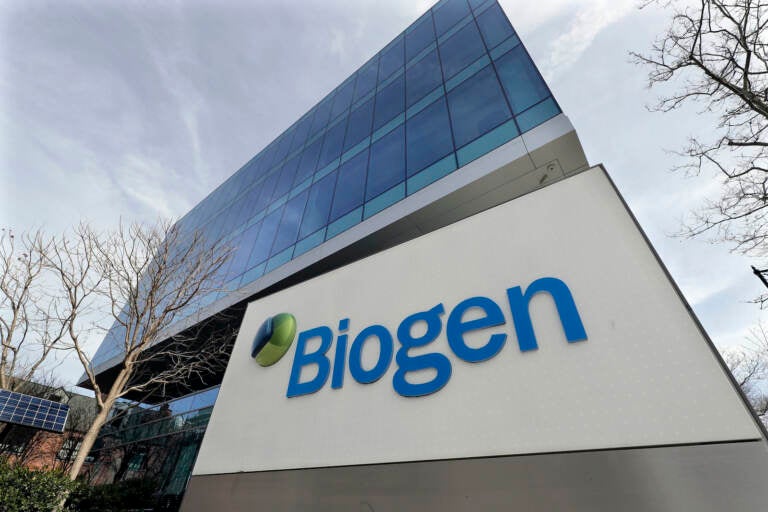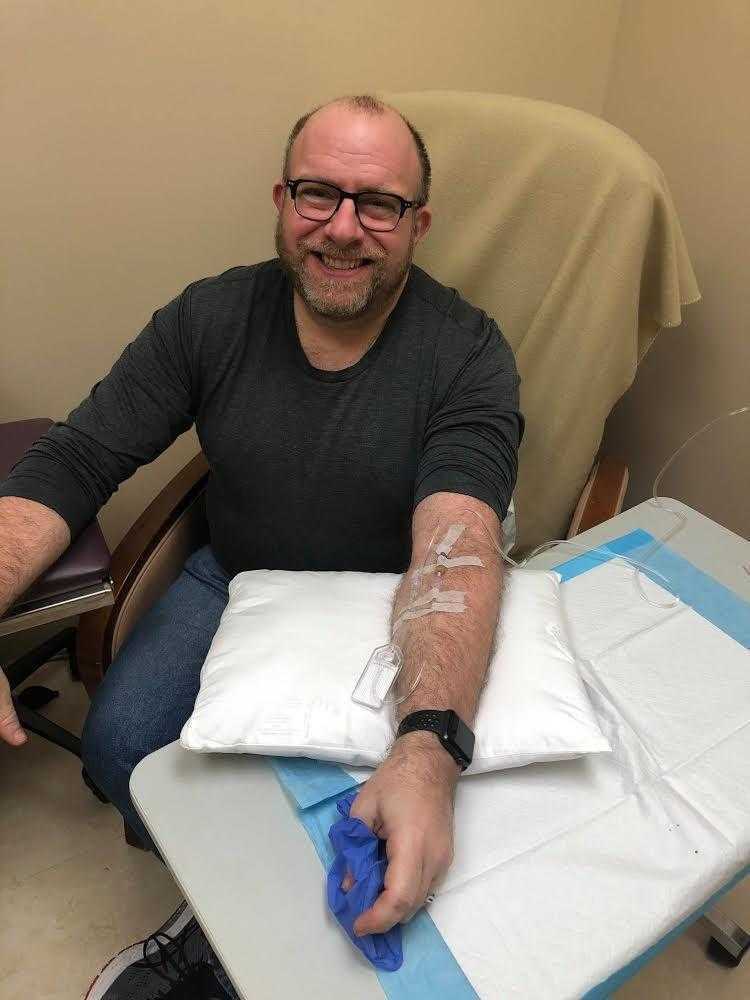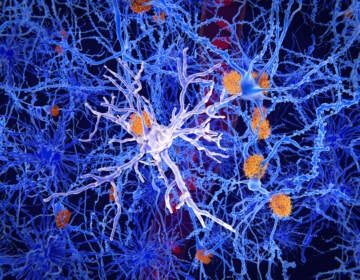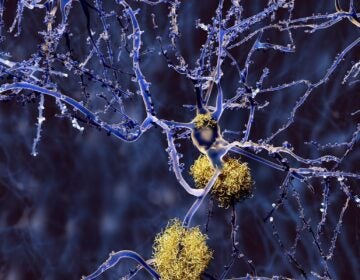New potential drug treatment for Alzheimer’s disease has Pa. patients, advocates, and doctors hopeful
Two biotech companies announced last week that preliminary trial data show their new Alzheimer’s drug, lecanemab, slowed cognitive decline.

FILE — The Biogen Inc., headquarters is shown March 11, 2020, in Cambridge, Mass. Shares of Biogen and other drugmakers researching Alzheimer’s disease soared early Wednesday, Sept. 28, 2022, after Japan’s Eisai Co. said its potential treatment appeared to slow the fatal disease’s progress in a late-stage study. Eisai announced results late Tuesday from a global study of nearly 1,800 people with early-stage Alzheimer’s (AP Photo/Steven Senne, File)
An estimated 280,000 Pennsylvanians currently live with Alzheimer’s disease.
Phil Gutis is one of them. He was diagnosed with early-onset Alzheimer’s at age 54.
“There were a lot of tears. A lot of tears,” Gutis said on a recent Friday afternoon as he sat on the front porch of his home in New Hope. “But at the same time, there was also a sense of relief, because I knew something was wrong.”
Now six years after his diagnosis, Gutis said he feels good. He continues to work as a freelance editor, writer, activist, and avid LEGO builder. He spends much of his time with his husband, Tim, and their four dogs.
Gutis credits his level of function to medications like Aduhelm, which was controversially approved by the U.S. Food and Drug Administration last year to target and clear away amyloid brain plaque, a biomarker for Alzheimer’s disease.
“The big controversy has been, does that help slow the progression of the disease,” said Gutis, who gets a monthly infusion of Aduhelm. “I think it has.”

Now, a second anti-amyloid drug called lecanemab is showing similar, and possibly clearer, results.
Biotech companies Biogen and Eisai announced last week that preliminary clinical trial data on lecanemab showed early success in slowing cognitive decline up to 27% in people with mild to moderate disease.
More results and data are expected later this year. In an interview Monday with WHYY’s Radio Times, Dr. Jason Karlawish said lecanemab’s results look promising so far.
Notably, Karlawish, a professor of medicine at the University of Pennsylvania and co-director of the Penn Memory Center, said the trial for this drug was more inclusive and better representative of the Alzheimer’s population.
About 25% of participants were Hispanic or African American, according to Biogen and Eisai.
“Compared to other Alzheimer’s trials and frankly, compared to many other diseases of clinical trials, that’s a notable diversity with respect to race and ethnicity,” Karlawish said, “which suggests that efforts to give equal access and improve access to clinical trials for the study were successful.”
Lecanemab doesn’t come without risks. Similar to Aduhelm, people can experience brain swelling or bleeding, which could be temporary or cause more significant medical complications.
The drug is also not a cure for the disease. But Kristina Fransel, executive director of the Delaware Valley chapter of the Alzheimer’s Association, said patients and their families should get an opportunity to weigh the risks and try the treatment.
“You want to be able to consider something that could give you back more time, whether that’s more time to attend a wedding or more time to attend a graduation, more time to spend with your family, to be a part of making health care decisions for yourself,” she said. That’s what this potential treatment represents for people.”
Fransel said despite decades of setbacks and disappointments in treatment advancements for Alzheimer’s disease, she and other advocates still remain optimistic and hopeful for new treatments with potential.
Karlawish added that advancements like this one can open the door to more treatment options someday.
“We should see a future where different kinds of approaches are available to treat the disease, perhaps even in combination,” he said Monday on Radio Times.
For now, Gutis will stick with his infusions of Aduhelm, but said he’s excited for what treatments may still be ahead to help people like him manage and live with a disease like Alzheimer’s.
“Just being able to feel like you’re productive again, God, that makes a difference mentally, you know?” he said. “To be able to be a productive member of society again, that’s what these drugs give you. That time to be productive, to contribute, to not feel like your life is over. And it’s not.”
WHYY is your source for fact-based, in-depth journalism and information. As a nonprofit organization, we rely on financial support from readers like you. Please give today.





